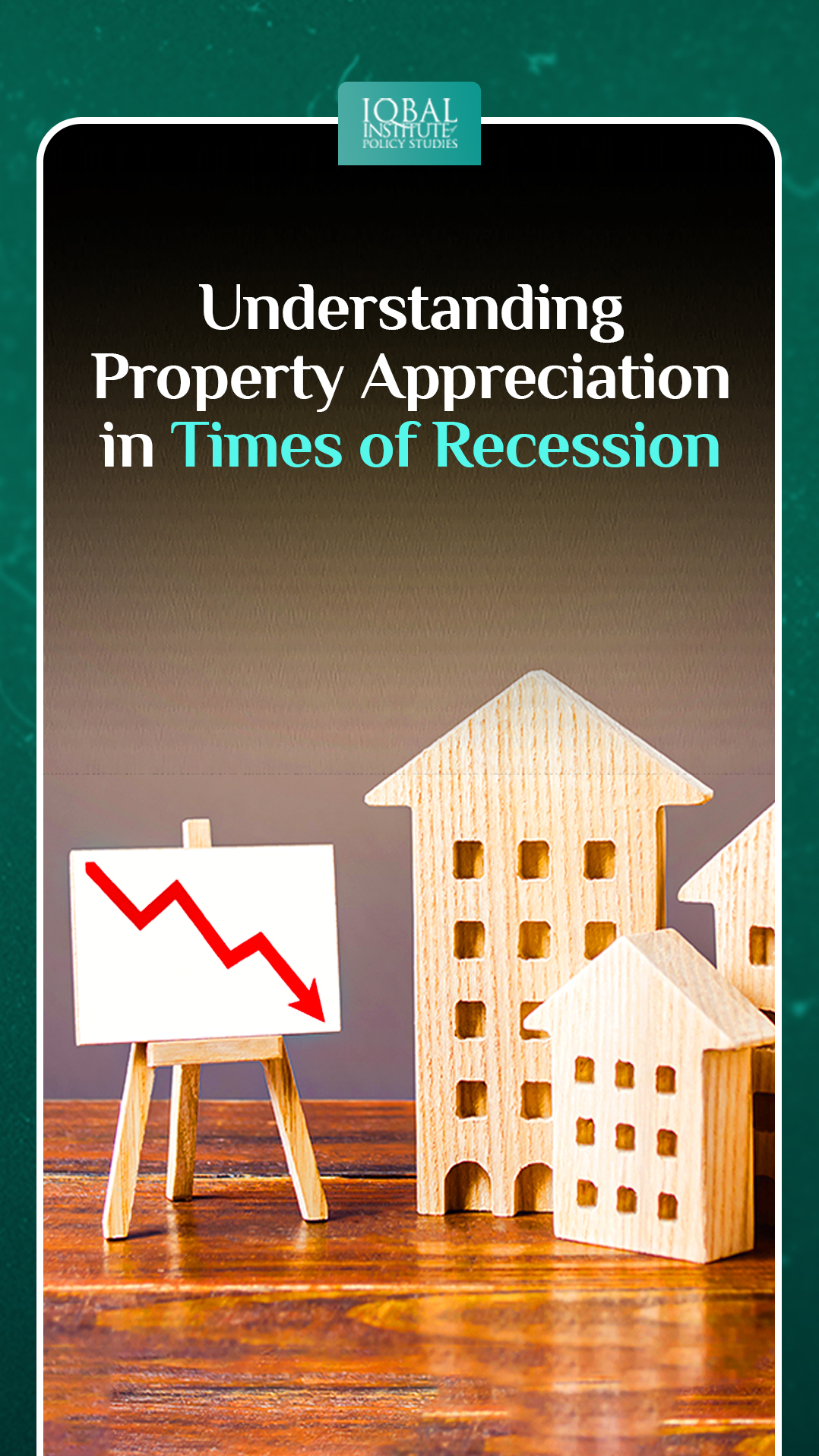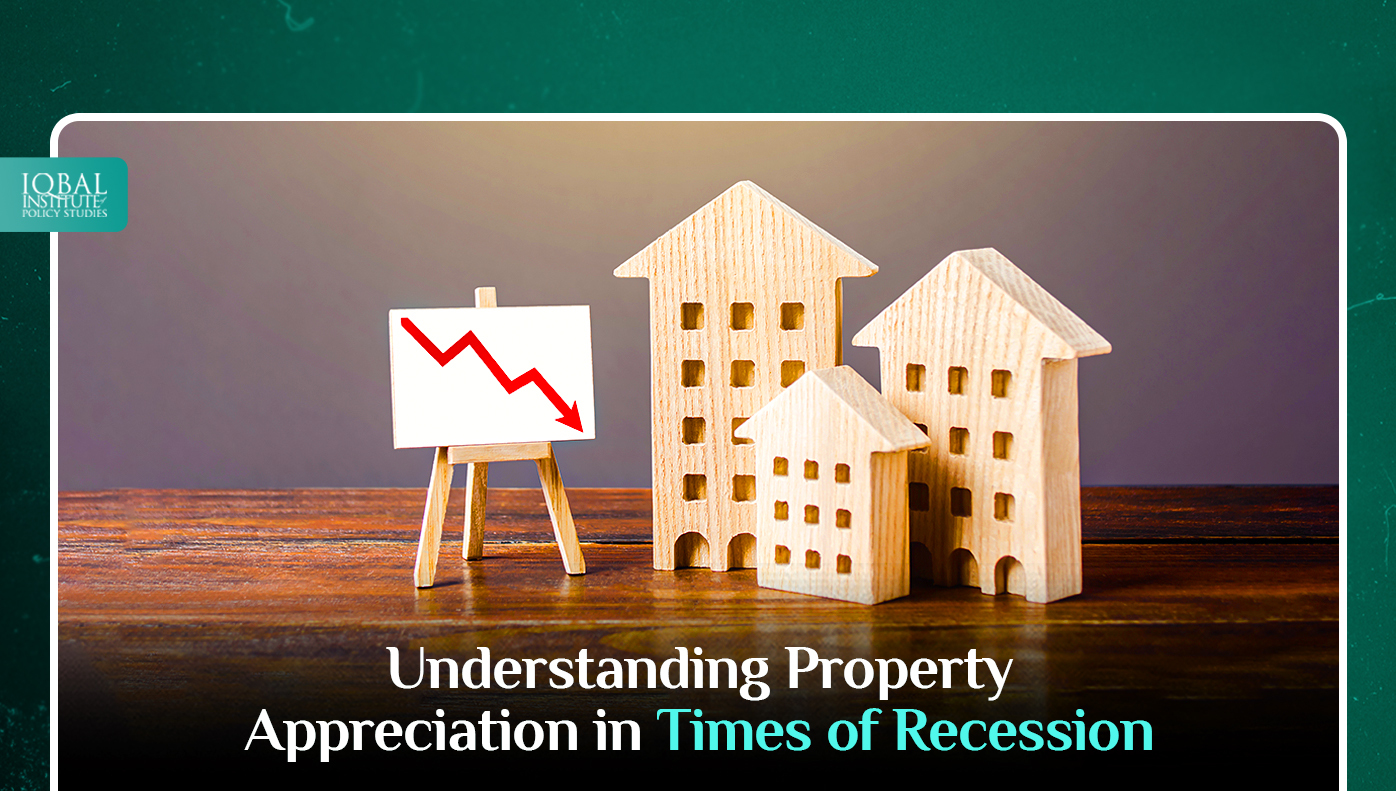Property appreciation is more than a buzzword. It is the cornerstone of building and preserving wealth. However, economic recessions can have a notable impact on the real estate market. Typically, during a recession, property values may experience declines or slower growth, while demand for rental properties tends to rise as individuals postpone homeownership. Nonetheless, real estate remains a resilient investment, often bouncing back and continuing to appreciate in the long term, making it an attractive option for those who can weather short-term economic challenges. Over time, real estate has consistently demonstrated its capacity to withstand economic turmoil and provide long-term returns. Moreover, real estate, often hailed as a stable investment, offers a beacon of hope for investors and homeowners seeking refuge from market turbulence. Therefore, understanding the dynamics of property appreciation in the context of economic recessions is crucial for both investors and homeowners. By adopting strategic approaches, diversifying portfolios, and seeking professional guidance, individuals can harness the enduring strength of real estate even in the face of economic uncertainty.
Property Appreciation: A Foundation in Real Estate
At its core, property appreciation refers to the increase in the value of real estate assets over time. Unlike some financial assets, which may fluctuate dramatically based on market sentiment, real estate’s inherent value often grows steadily with the years.
The Remarkable Resilience of Real Estate
The resilience of real estate shines through its intrinsic value as a tangible asset, ensuring that it remains intact even during economic downturns. This resilience is further underscored by the consistent income streams generated from rental properties, offering stability when other investments may falter.
The Tangibility Advantage
One of the most compelling reasons for real estate’s resilience in times of recession is its tangible nature. When you own a property, you possess a physical asset with inherent value. Unlike stocks, bonds, or other financial instruments, real estate is not just a representation on paper; it is land and structures that maintain intrinsic worth. During a recession, this tangible asset remains intact, offering a sense of security to investors.
The Dependable Income Stream from Rentals
Another hallmark of real estate’s resilience is its ability to generate a steady income stream, primarily through rental properties. During recessions, individuals often opt for renting over homeownership due to economic uncertainties. This heightened demand for rental properties results in a consistent source of income for property owners. While other investments may see erratic returns, rental income tends to remain stable, providing a reliable financial cushion.
Historical Data Speaks Volumes
Historical data underscores the performance of real estate during recessions. While short-term fluctuations may occur, the long-term trend is one of appreciation. Real estate has consistently outperformed other investment options, such as stocks, providing investors with a dependable avenue for wealth-building, even during economic downturns.
Factors That Boost Real Estate’s Resilience
A Hedge Against Inflation
Real estate serves as an effective hedge against inflation. As the cost of living rises, rental rates and property values tend to follow suit. This intrinsic link helps real estate investors shield themselves from the devaluation of currency. While other assets may falter in the face of rising prices, real estate remains a steadfast protector of value.
Diverse Investment Options
Real estate offers a diverse range of investment opportunities, from residential homes and commercial properties to industrial spaces and Real Estate Investment Trusts (REITs). This diversity empowers investors to allocate their capital strategically, reducing exposure to risks associated with a single property type or location. Moreover, by diversifying their portfolios, investors can better weather the storms of economic uncertainty.
Stable Cash Flow
Investors who maintain portfolios of rental properties enjoy the benefit of stable cash flow. Even in a recession, rental income continues to flow, helping cover expenses, mortgage payments, and providing a financial buffer against economic challenges. While property values may experience temporary declines, rental income remains a constant, offering a sense of financial security.
Capitalizing on Buying Opportunities
Recessions can present unique opportunities for property acquisition. Lower property prices and decreased competition can offer investors the chance to acquire assets at a lower cost. This lower entry point positions investors to benefit from significant appreciation when the market eventually rebounds.
Strategic Investment During a Recession
To navigate the real estate market effectively during a recession, consider the following strategies:
Diligent Research and Market Analysis: Thoroughly research local real estate markets. Assess the potential for job growth and evaluate the stability of the area. Also, a deep understanding of the local market is crucial in making informed investment decisions.
Portfolio Diversification: Diversify your real estate portfolio by investing in various property types and geographic locations. Diversification can help mitigate risks associated with economic fluctuations in a particular area or sector.
Seek Professional Advice: Consulting with real estate professionals, such as real estate agents, property managers, or financial advisors, can provide valuable insights and guidance. Their expertise can help you make informed decisions in a recessionary environment.
Maintain Adequate Liquidity: Ensure that you have sufficient liquidity to cover expenses and contingencies. Avoid overextending your finances, and maintain a financial cushion to weather economic uncertainties.
Explore Real-Life Examples: Explore real-life examples of properties or regions that appreciated during past recessions. Some areas with resilient job markets or properties with unique value propositions have continued to appreciate even when faced with economic downturns.
Read about Success Stories: Read about investors who seized recession-era opportunities, made astute property acquisitions, and achieved significant appreciation when the market rebounded. These success stories provide valuable insights into effective investment strategies during economic uncertainty.
Conclusion
In times of recession, understanding property appreciation is not just about safeguarding your investments; it is about recognizing the enduring value of real estate. Real estate’s tangible nature, consistent income potential, historical performance, and strategic opportunities make it a reliable choice for building and preserving wealth, even in the face of economic uncertainty. By adopting sound investment strategies and leveraging the unique strengths of real estate, investors can find stability and security in this resilient asset class, regardless of the economic climate. Real estate stands as a testament to the adage that “home is where the heart is” and where your financial future can flourish, even when the economic winds are turbulent.
This article is written by Haneen Gul. Haneen is a research analyst at the Iqbal Institute of Policy Studies (IIPS).



Leave a Reply